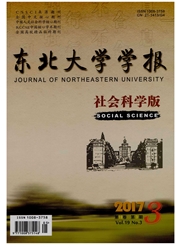

 中文摘要:
中文摘要:
自葛梯尔问题提出以来,当代知识论的论证基本集中在确证这一要素之上,但就确证而言,无论是其结构还是其功能都饱受争议,至今仍未有定论。贝叶斯知识论跳出了有关确证的争论,是一种追寻既具简洁直观、精炼准确,又有着数学的美感、严谨的理论。主观概率是理解贝叶斯知识论的确证模型的切人点,也是该理论的预设前提。荷兰赌论证和条件化定理是贝叶斯知识论的两大基石。然而贝叶斯知识论自身也有其缺陷,不可避免地遭受来自各方的抨击。
 英文摘要:
英文摘要:
Since the emergence of Gettier problems, modern epistemologists have focused on the element of justification, which is controversial and inconclusive in terms of its structure and function. Departing from the debates on justification, Bayesian epistemology makes an attempt to formulate a theory that is concise, straight, precise and elegant. Subjective probability is a presupposition and an appropriate entry point of understanding Bayesian epistemology. Dutch Book Argument and conditionalization serve as the two cornerstones of Bayesian epistemology. However, Bayesian epistemology has its own shortcomings, which inevitablv undergoes a lot of criticism
 同期刊论文项目
同期刊论文项目
 同项目期刊论文
同项目期刊论文
 期刊信息
期刊信息
